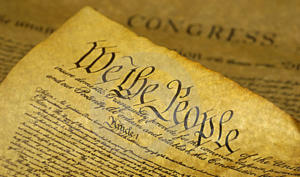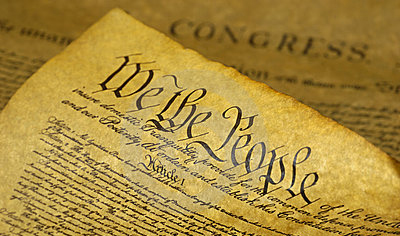
Your Constitutional Right to Confront and Cross-Examine Witnesses
Your right to confront and cross-examine witnesses is found in the 6th Amendment which reads as follows:
In all criminal prosecutions, the accused shall enjoy the right to a speedy and public trial, by an impartial jury of the state and district wherein the crime shall have been committed, which district shall have been previously ascertained by law, and to be informed of the nature and cause of the accusation; to be confronted with the witnesses against him; to have compulsory process for obtaining witnesses in his favor, and to have the assistance of counsel for his defense.
Although not well-known nor discussed much, your right to confront and cross-examine witnesses against you is one of the most important of all your rights. This right allows your defense attorney to depose witnesses who are scheduled to testify for the State as well as examine evidence intended to be used against you at trial. At trial, it lets your attorney question every State’s witness to try and bring out inconsistencies and/or show that the witness is being less than truthful. Without this right, the government could accuse you of committing a crime and your attorney would be forced to defend you blind, without having any idea ahead of time what the State planned to use against you.
Your Constitutional Right against Double Jeopardy
Your right against double jeopardy is found in the 5th Amendment which reads as follows:
No person shall be held to answer for a capital, or otherwise infamous crime, unless on a presentment or indictment of a grand jury, except in cases arising in the land or naval forces, or in the militia, when in actual service in time of war or public danger; nor shall any person be subject for the same offense to be twice put in jeopardy of life or limb; nor shall be compelled in any criminal case to be a witness against himself, nor be deprived of life, liberty, or property, without due process of law; nor shall private property be taken for public use, without just compensation.
This right protects you from being punished for the same offense twice. Your protection against double jeopardy extends to all felonies, misdemeanors, and juvenile delinquency adjudications, regardless of the punishments they prescribe. Exactly when jeopardy attaches is the critical question when discussing your right against double jeopardy. For jury trials, jeopardy attaches when the jury is sworn. In criminal cases tried by a judge without a jury, jeopardy attaches when the first witness is sworn in. If a defendant enters a plea agreement with the prosecution, jeopardy does not attach until the court accepts the plea. Where double jeopardy often becomes difficult to analyze is when trying to determine what constitutes the same offense.
Your Constitutional Right to Bail
Your right to bail can be found in the 8th Amendment which reads as follows:
Excessive bail shall not be required, nor excessive fines imposed, nor cruel and unusual punishments inflicted.
When arrested and charged with a criminal offense, almost all defendants have the ability to secure their release while the case is pending once the court sets bail. Exactly how much that bail should be set at is where the controversy can be found in this right. According to one well-known case, “bail is “excessive” in violation of the Eighth Amendment when it is set at a figure higher than an amount reasonably calculated to ensure the asserted governmental interest.” Stack v. Boyle, 342 U.S. 1, 4 (1951) When applied correctly, the “test” for determining an appropriate bail amount means that a judge should only consider factors such as the risk to the community, severity of the charges against the defendant, and the likelihood that the defendant will appear for all future court dates when setting bail.
Contact a Murfreesboro Criminal Lawyer
If you have been accused of a criminal offense in Tennessee, it is in your best interests to consult with an experienced Murfreesboro criminal lawyer at Bennett, Michael & Hornsby as soon as possible. Contact the team today by calling 615-898-1560 to schedule your appointment.
- When Are Miranda Warnings Required? - April 16, 2024
- 5 Benefits of Mediation in a Tennessee Divorce - April 9, 2024
- Understanding White-Collar Crimes in Tennessee - April 5, 2024







